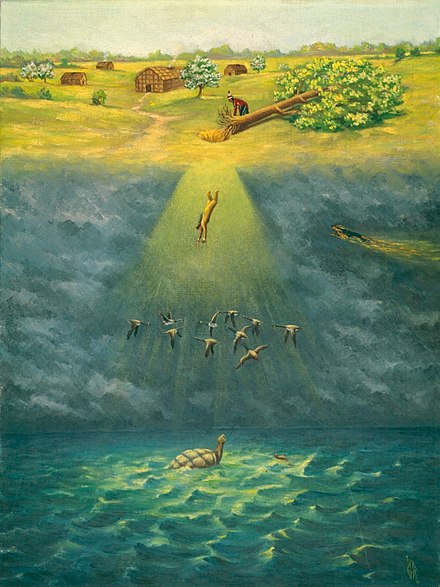Ernest Peter Smith (October 28, 1907 – February 25, 1975) was a Native American artist from the Tonawanda Seneca Nation.[1] Smith painted mostly traditional Seneca myths and stories of daily life in the Seneca village he grew up in. In the 1930s Smith produced a large series of paintings documenting Seneca life, as part of the WPA Indian Art Project.
Personal Reflection:
The story of Skywoman in present in many different North American oral traditions and explains the origin of humans on earth. The story teaches reciprocity and the remembering that humans arrived to the world last, making us the youngest of species and therefore, reminding us of the importance to learn from the other species. This painting by Ernest Smith portrays the story. Kimmerer (2013) talks about the importance of storytelling in the shaping of our futures. This painting brings forth a question: how can our world look like if we remember the stories of this land and integrate reciprocity to the ways we live? I believe this art piece and the story behind it as an example of an Indigenous North America story that exemplifies an earth-centered way to live and can therefore be woven into earth centered ways to design for a more sustainable future.
References:
Kimmerer, R. W. (2013). Braiding sweetgrass (First edition). Milkweed Editions.
Smith, E. (1936). Sky Woman.




